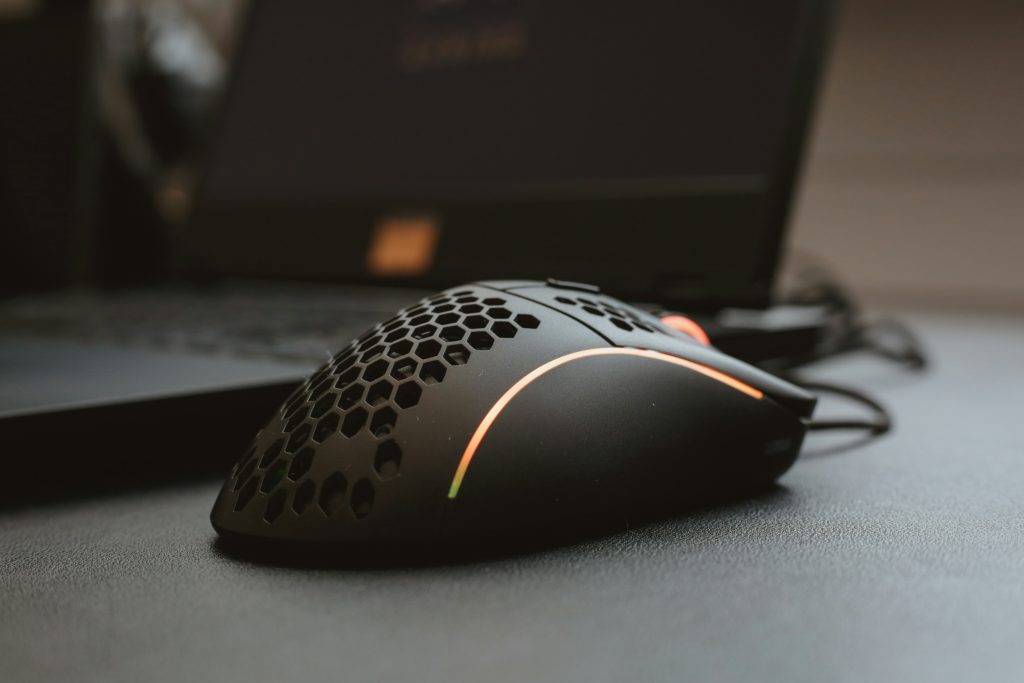When it comes to selecting a gaming mouse, it’s easy to get lost in a sea of flashy features and endless marketing claims. However, the best gaming mouse don’t just look good—they offer performance and comfort that can truly enhance your experience. Whether you’re new to the world of gaming peripherals or a seasoned pro, the right mouse can make a huge difference. Here’s a breakdown of the most important factors to consider when choosing the perfect gaming mouse.
1. Ergonomics: Comfort Comes First
The design and feel of a mouse are crucial for prolonged gaming sessions. If the mouse isn’t comfortable, even the best specifications won’t help you perform well. The shape of the mouse should fit your hand naturally and allow you to grip it in a way that feels relaxed. Mouse come in various shapes designed for different grip styles, such as:
- Palm Grip: Your entire hand rests on the mouse, making larger mouse with more rounded shapes a good choice.
- Claw Grip: Only the palm of your hand touches the mouse, with fingers arched above the buttons, which may work well with medium-sized mouse.
- Fingertip Grip: The fingers are primarily responsible for controlling the mouse, so smaller, lightweight mouse are typically preferred for this style.
Look for a mouse that feels comfortable and lets you play for hours without straining your hand or wrist. Adjustable features, like customizable side grips, are a plus.
2. Sensor Type: Accuracy and Precision
The sensor is one of the most important components of a gaming mouse. It determines how accurately your movements are translated to the screen. There are two primary sensor types:
- Optical Sensors: These are known for their precision and are often favored by gamers who require accuracy. Optical sensors work well on most surfaces, making them versatile for different gaming setups.
- Laser Sensors: Offering higher DPI (dots per inch) settings, laser sensors can track even the smallest movements. They tend to work on a wider variety of surfaces, but they can sometimes be prone to higher amounts of acceleration, which can cause irregularities in tracking.
Look for a mouse that offers high DPI with the option to adjust it on the fly. This is important because different games and situations may require different levels of sensitivity.
3. DPI and Sensitivity: Adjusting to Your Needs
DPI (dots per inch) measures the sensitivity of the mouse. A higher DPI means the mouse pointer will move further with less physical movement of the mouse. For tasks like fast movements or precision aiming, you’ll want a mouse that offers adjustable DPI settings. A gaming mouse should allow you to adjust sensitivity quickly, often via a button or software, to suit different game genres or playstyles.
Look for a mouse with a wide range of DPI settings and the ability to change it instantly, so you can make quick adjustments when needed. Some advanced mouse allow you to store multiple DPI profiles, letting you switch between them during gameplay.
4. Weight and Balance: Find the Right Feel
Weight plays a big role in how a mouse handles. Some gamers prefer a heavier mouse for more control, while others opt for a lightweight mouse that offers faster movements. Fortunately, many gaming mouse now feature adjustable weights, so you can customize the mouse to your exact preference.
The balance of the mouse also matters. A well-balanced mouse ensures that your hand doesn’t feel strained or uneven as you move it. Look for a mouse with weight distribution options or one that naturally feels balanced in your hand.
5. Buttons and Customization: Tailor It to Your Style
Having programmable buttons can be a major advantage, especially in games that require quick access to various functions. Many gaming mouse come with extra side buttons that you can customize to perform specific tasks, whether it’s a complex action or a simple key press.
When choosing a mouse, consider the number and placement of buttons. You don’t want to accidentally click the wrong button during gameplay, so the buttons should be easily accessible without being too close together or difficult to find.
6. Connectivity: Wired vs. Wireless
The debate between wired and wireless mouse comes down to preference and performance. Wired mouse are generally preferred for their direct, lag-free connection. They are a safe bet if you want to avoid any potential connectivity issues or input lag, especially in high-speed games.
Wireless mouse, on the other hand, provide greater freedom and reduce cable clutter. Modern wireless mouse have improved significantly in terms of performance, with many offering a stable connection with no noticeable input lag. Look for wireless mouse that feature low-latency technology, ensuring performance is on par with wired options.
7. Durability and Build Quality: A Mouse That Lasts
Durability is an important factor, especially if you’re gaming frequently or at a competitive level. The materials used in the construction of the mouse affect its longevity. High-quality switches can handle millions of clicks without deteriorating, and durable coatings prevent wear and tear over time.
Check the build quality and material of the mouse. Mouse with reinforced buttons and sturdy construction are more likely to last longer, even under intense use.
8. Software: Fine-Tuning Your Setup
Many gaming mouse come with companion software that lets you fine-tune settings like button assignments, lighting effects, and DPI profiles. The best software offers an easy-to-use interface and a wide range of customization options. Whether it’s assigning macros, adjusting polling rates, or setting up profiles for different games, good software can make a huge difference in how well you can tailor your mouse to your needs.
Look for a mouse that provides software with simple and intuitive controls. A good software suite should give you the flexibility to adjust the mouse to suit your playstyle.
9. Price: Get the Best Value
Lastly, the price should reflect the features and build quality of the mouse. While higher-end gaming mouse tend to offer more customization and better performance, you don’t always need to break the bank to get a good product. Assess what features are most important to you and choose accordingly. For many, a solid mid-range mouse will deliver excellent performance without the hefty price tag.
Conclusion
Choosing the right gaming mouse depends on a balance of comfort, precision, and customization. Whether you’re looking for a mouse that fits your grip style, offers adjustable sensitivity, or has the durability to last through intense gameplay, the perfect mouse will make a noticeable difference in your gaming experience. Keep in mind what features matter most to you—whether it’s ergonomics, weight, or button customization—and select a mouse that suits your preferences. With the right choice, you’ll be able to play at your best and enjoy every session.

